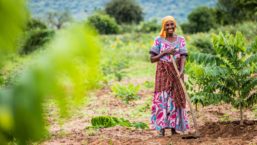Sustainable Food Production
Maker of Palmless™, the platform for sustainable palm oil alternatives, to apply new $3.5 million grant from the Bill & Melinda Gates Foundation
Read More
Upcycling on the Up and Up
Interview with Caroline Cotto, co-founder and COO of Renewal Mill, Pbc.
January 22, 2024
Four Key Sustainability Efforts for 2024
Food and beverage brands continue commitment to sustainable industry evolution
January 17, 2024
Bobo's Partners with Acorn to Support Sustainable Agroforestry Farming Practices
As part of the initiative, Bobo's purchased carbon removal units to offset its bakery carbon emissions
January 10, 2024
Inline Plastics: Sustainably Certified
Inline Plastics receives recycled material certification
January 10, 2024
Kellanova Introduces Snack Lines with Reduced Plastic Packaging
Brands with updated packaging include Cheez-It® Snap'd®, Cheez-It® Puff'd® and Club® Crisps
December 18, 2023
PREDICTIONS 2024
How Consumers, Food Processors Approach Sustainability
Two industry experts discuss sustainable demand and industry strategies in 2024
December 13, 2023
PREDICTIONS 2024
Predictions for a Thrifty, Sustainable, Health-Driven Future
Imbibe suggests that cost-saving innovations, sustainability initiatives, effective products, and women's health will dominate in 2024
December 8, 2023
WNWN Presents Cocoa-Free Chocolate in Mondelēz CoLab Tech R&D Showcase
CoLab Tech will address the company’s challenges in sustainability, food technologies, and process technologies
December 5, 2023
Unlock the Future of Food and Beverage Innovation
Are you a leader in research & development? Stay ahead of the curve with Prepared Foods, the premier source of information and insights for today's trend leaders and taste-makers in food and beverage manufacturing.
JOIN TODAYCopyright ©2025. All Rights Reserved BNP Media.
Design, CMS, Hosting & Web Development :: ePublishing











